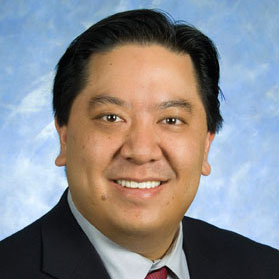A 2020 View of Employment Law
 “Gig workers,” “#metoo,” “non-binary,” “mandatory arbitration,” “misclassification,” “ban-the-box,” “leaves of absence,” and “no-rehire,” are just some of the buzzwords and concepts tackled by our fantastic authors this month: Yen Chau, Natasha Chee, Aaron Langberg, Mark LeHocky, Terry Leoni, Beth Mora and Marta Vanegas.
“Gig workers,” “#metoo,” “non-binary,” “mandatory arbitration,” “misclassification,” “ban-the-box,” “leaves of absence,” and “no-rehire,” are just some of the buzzwords and concepts tackled by our fantastic authors this month: Yen Chau, Natasha Chee, Aaron Langberg, Mark LeHocky, Terry Leoni, Beth Mora and Marta Vanegas.
“Employment law” is not just a practice area for attorneys. Employment law permeates all facets of society and culture. This issue of the Contra Costa Lawyer magazine focuses on practical and forward-thinking concepts and strategies for those who are already sophisticated employment law attorneys, as well as those who are new to, or only dabble in, employment law.
For example, “#metoo” has provided the momentum for numerous California legislative changes in the past two years, including but not limited to, the following:
- Extended to three years: the California deadline to file claims with the Department of Fair Employment and Housing
- Expanded sexual harassment training for employers
- Additional implicit bias training for courts and attorneys
- Confidentiality and “no-rehire” provisions in settlement agreements
- Required gender representation on boards of public companies
- More comprehensive requirements for workplace lactation accommodations
- Recognition that California is a non-binary state
While we do not tackle all of these topics in this magazine, Mark LeHocky and Beth Mora have provided excellent articles that delve into some of these issues in mediation, and in the workplace. Beth’s article titled “Language Matters,” in particular, contains important definitions and information all of us should consider for use in and beyond the workplace.
No employment law themed magazine in 2020 would be complete without an article focused on AB 5 – independent contractor vs. employee classification. The law is somewhat controversial and confusing. Yen Chau, Natasha Chee and Marta Vanegas have dissected the law and written articles that tackle strategies for dealing with AB 5 and “misclassification.”
Another quickly evolving area of the employment law surrounds arbitration agreements. First-time author Aaron Langberg analyzes California’s law and hostility towards such agreements, and the current (as of late January 2020) status of that law. Read Aaron’s article and take the MCLE Self Study test to earn one general MCLE credit.
Finally, Terry Leoni’s article is another great example of the ubiquitous nature of employment law topics, and how employment law and criminal law mesh in many areas, including the relatively new “ban-the-box” law, leaves of absences for victims of crime, and other cross-over issues.
In addition to each author, I would like to thank David Ratner for his role in reviewing and editing the articles. David is also serving as the 2020 Section Leader for the Employment Law Section, and I look forward to seeing the section thrive in 2020. Stay tuned for more news, MCLE programs, and social events from your CCCBA Employment Law Section members.